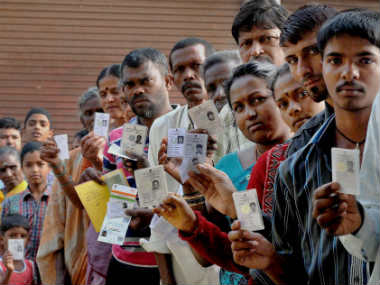riticising the Supreme Court judgment which dismissed the petitions challenging the Rafale deal, CPM mouthpiece, Peoples’ Democracy, in its latest editorial said the verdict is “controversial” and has put the court’s reputation at risk.
In a relief to the Modi government, the Supreme Court on 14 December dismissed the pleas challenging the deal between India and France for procurement of 36 Rafale jets saying there was no occasion to “really doubt the decision making process” warranting setting aside of the contract.
A bench headed by Chief Justice Ranjan Gogoi said there has been a necessity of fighter aircraft and the country cannot remain without these jets. The editorial was titled as: ‘Rafale deal: A Controversial Judgment.’

“The Supreme Court judgment by a three-member bench on the Rafale deal has become controversial even before the ink on the judgment has dried. Indeed, accepting notes in sealed covers, acceptance of government’s arguments at face value, puts the court’s reputation at risk,” the editorial said.
It further said that the scope of judicial review was whether the defence procedures laid down were violated in the Rafale deal, and whether the Indian people have a right to know the price of defence deals.
“On both counts, the court has effectively said that it is not their task to do such a review, and accepted it as government’s prerogative to keep the price of Rafale aircraft secret,” it said.
The editorial was also critical of the government’s move to file an affidavit on 15 December before the SC to make a factual ‘correction’ in a paragraph in the Rafale judgment in which a reference was made about the Comptroller and Auditor General (CAG) report and Parliament’s Public Accounts Committee (PAC).
“Is this a revision petition? And if it is, will others be heard in the petition? Or will the court cover its embarrassment and declare the petition to be only a grammatical correction of its poor English?
“The controversy over what was submitted in sealed cover and ‘misunderstood’ by the court raises another issue. What else was in the sealed cover? And how much of it has led to the court making up its mind not to interfere?” the editorial asked.
Stating that the procedures were not followed in the Rafale deal, the editorial compared it to the 2G scam under the UPA.
“That is why it was important for the Supreme Court to examine the procedural violations by the Modi government in the case of the Rafale deal, while examining how the price of the Rafale aircraft was arrived at,” it said.
The Court had said that perception of individuals cannot be the basis of a “fishing and roving enquiry” by the court in such matters and it cannot “sit in judgement” over the wisdom of government’s decision to go in for purchase of 36 aircrafts in place of 126.
It noted that process for procurement of 36 Rafale jets was concluded on 23 September, 2016 and no questions were raised at that time and the petitions were later filed after reported statement of former French President Francois Hollande with regard to selection of Indian offset partners.
On the offset partner, the bench noted that this issue had “triggered” the litigation as petitioners had alleged that government gave a benefit to Reliance Aerostructure Ltd by compelling Dassault Aviation to enter into a contract with them at the cost of public enterprise, Hindustan Aeronautics Ltd (HAL).
“We do not find any substantial material on record to show that this is a case of commercial favouritism to any party by the Indian government, as the option to choose the IOP (Indian offset partners) does not rest with the Indian government,” it said.
source: Firstpost.com







































